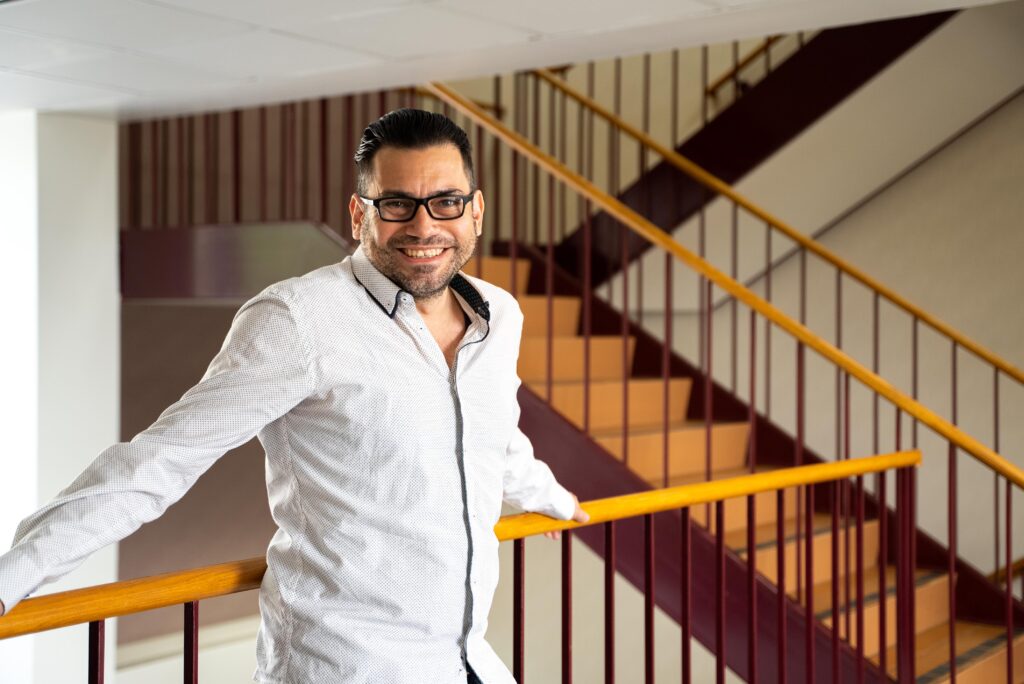
“In my courses I provide opportunities for students to establish connections between class experience and community engagement.“
What are your areas of research and teaching expertise?
Latin American literature: Twentieth century and contemporary, its intersection with gender, sexuality, armed conflict, and peace.
What is your teaching style?
My classroom is an open space for structured and guided discussion. I embed language learning in real communicative situations, in order to engage with relevant issues in the Spanish speaking world (keeping always in mind connections with the rest of the world). Finally, in my courses I provide opportunities for students to establish connections between class experience and community engagement (via Community-Based and Service Learning).
What advice would you give a first-year student or future Gustie?
Embrace dialogue and discussion in the classroom. Appreciate all the layers of human, social, artistic, and scientific inquiry in the undergraduate experience offered in our different classroom settings. And finally, make sure to complement this array of classroom experiences with extracurriculars that give you the opportunity to create meaningful bonds and relationships with your professors, peers, administrators, staff, and community members.
How did your disciplinary passion ignite? Describe your “lightbulb moment.
My passion was not the result of one single moment: maybe it was my habit of writing my own stories when I was 5, or it was the philosophy teacher who assigned us to read Umberto Eco’s “The Name of the Rose” when I was 15; or perhaps when I discovered, without anyone’s recommendation, the understanding of society’s hypocrisies in Tolstoi’s “Anna Karenina”, or the power of pacing a long narrative in Thomas Mann’s “The Magic Mountain”… and definitely when I started to teach language, literature, and culture and find that the puzzle of attempting to promote critical thinking through discussion and engagement with our current context is so much more challenging than anything I had done before… and so much rewarding.
What do you enjoy outside the classroom?
Writing my own stories; traveling and getting to live for the span of a few weeks in a place other than my own.
Do you have an academic mentor or someone who has made a great impact on your academic journey? How did this person inspire you or make you think differently about how you approach your work?
I am indebted to all of my colleagues. I think that every single one of them -particularly in the Spanish section at Gustavus- has been a source of inspiration. Before, I had been in environments where the work, assignments, and curricula were established through a very hierarchic structure (and I’m also indebted to them as this structure also taught me a great deal)… But in the Spanish section in Gustavus, and in the collaborations and discussions I have had with other language professors, collaborators in Gender, Women, and Sexuality Studies, and Peace Studies… my Gustavus colleagues have taught me a great deal about how to work together in order to achieve a common goal, but having always been respectful of the points in which we dissent.